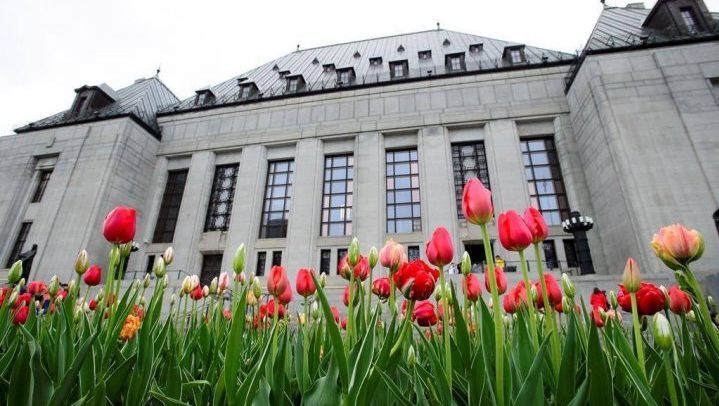The Supreme Court of Canada has set a tentative date to hear the Saskatchewan government’s appeal of the federal carbon tax.

The court said the appeal is tentatively scheduled for Dec. 5 in Ottawa.
The Saskatchewan Court of Appeal ruled in a 3-2 decision on May 3 that the federal government has the constitutional power to implement a carbon tax in provinces that do not meet Ottawa’s minimum price.
The Saskatchewan government announced afterwards its intention to appeal that decision to Canada’s highest court.
“While our government was disappointed with the split decision from the Saskatchewan Court of Appeal, we believe that the federal government has violated the constitutional jurisdiction of the provinces through the imposition of the federal carbon tax,” Don Morgan, Saskatchewan’s justice minister and attorney general, said Tuesday in a statement.
“Our government looks forward to standing up for the hard-working people of Saskatchewan against the frivolous and ineffective carbon tax in the Supreme Court of Canada on Dec. 5.”
Alberta said Tuesday it is supporting Saskatchewan’s appeal and applying for intervener status.
“The split decision at the Saskatchewan Court of Appeal was not a broad victory and raised significant questions about federal overreach into provincial jurisdiction,” said Doug Schweitzer, Alberta’s minister of justice and solicitor general.
“One of the underlying principles of our federation is the right of the provinces to manage their own affairs. Imposing a one-size-fits-all federal carbon tax disrupts this constitutional balance and ignores provincial authority to legislate in ways that reflect local conditions and circumstances.”
WATCH: Scott Moe and Catherine McKenna react to Saskatchewan Court of Appeal carbon tax ruling
The majority of Saskatchewan’s highest court found the federal government has the power to impose its carbon tax under a section of the Constitution that states Parliament can pass laws in the name of peace, order and good government.
Two dissenting justices said the federal government’s actions are not a valid use of that section of the Constitution.
The federal carbon tax on fuel was applied to Saskatchewan, Ontario, New Brunswick and Manitoba on April 1 as those provinces’ climate plans did not meet the federal backstop of $20 per tonne of CO2, growing to $50 per tonne in 2022.
Ontario’s Court of Appeal is also considering a decision on the constitutionality of the federal carbon tax. That case was heard in mid-April.
Alberta has also filed a challenge to the carbon tax in its province’s Court of Appeal after the federal government said a carbon tax will be imposed in Alberta on Jan. 1, 2020.
Alberta passed legislation to repeal its provincial carbon tax to fulfill a promise United Conservative Premier Jason Kenney made during his campaign for the April election.
“We are proud to stand together with Saskatchewan to fight the federal carbon tax,” Kenney said in a news release. “The federal government’s scheme punishes Albertans for heating their homes and driving to work. There is a better way to reduce emissions than this impractical and unconstitutional tax grab.”
—With files from the Canadian Press








Comments